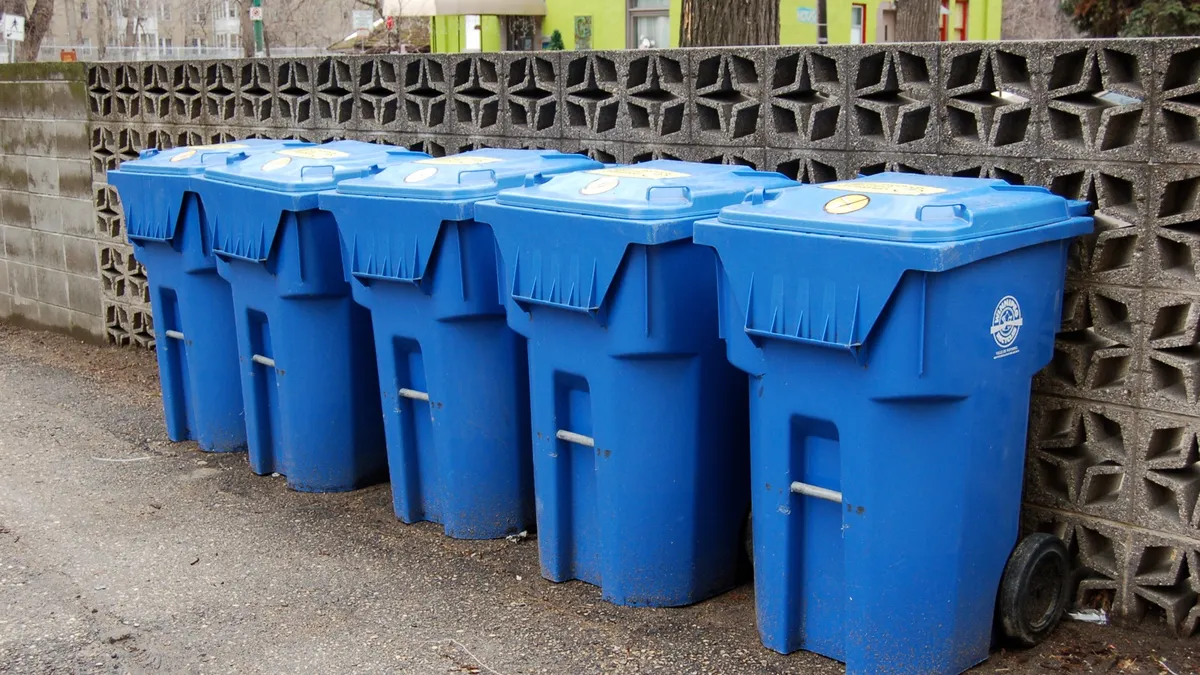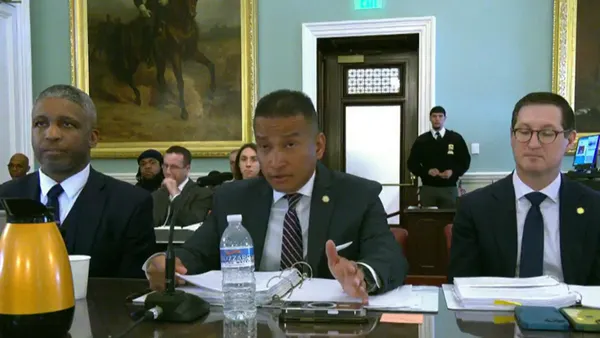UPDATE: Residents of Maine's largest city will begin receiving recycling carts for the first time next week, as reported by the Forecaster. The city of Portland has announced that it will begin delivering 25,000 carts on August 8 and aims to have them all distributed by Labor Day.
Most residents will receive 64-gallon carts, though buildings with five or more units will be getting 96-gallon carts. This will be a major size increase compared to the standard 16- or 18-gallon bins, which have been provided to residents since 1999 and will no longer picked up for curbside collection. City officials hope to see less litter and higher volumes as a result.
In total, the new carts ended up costing the city $1 million and The Recycling Partnership kicked in $7 per cart. While Portland's existing trucks are equipped to handle the carts, the city is also planning to purchase a new truck to add to the fleet. The city has also decided, after more than a year of discussion and a request for proposals, that it will not be privatizing waste collection.
Following a request for proposals in January, Portland received bids from Waste Management, Pine Tree Waste Services (a Casella Waste Systems subisidiary), Garbage to Garden and Agri-Cycle.
Dive Brief:
- After consultation with The Recycling Partnership, Portland, ME has decided to make the switch from open recycling bins to standard carts.
- The Partnership will help Portland purchase an estimated 25,000 new carts, with technical and educational assistance to implement the roll out. The final grant amount will depend on how many carts the city purchases, but the Partnership estimates contributing at least $200,000 for equipment and education.
- Unlike other cities where the Partnership has worked, Portland already has a pay-as-you-throw system with single-stream collection and strong recycling participation. This latest project is as seen as a unique opportunity to evaluate how much improvement carts can bring to an already successful program.
Dive Insight:
Last year, a study found that 15% of Portland's open recycling bins were regularly overflowing and contributing to litter conditions that could cost the city up to $250,000 per year. The city has expressed interest in carts for years as part of a larger conversation about changing its collection system. The capital costs involved with purchasing new carts, and potentially new trucks, has been a key factor.
In January, Portland began reviewing bids for a potential switch to privatization under a 10-year contract and the purchase of new carts. Portland's sustainability manager told Waste Dive that the city's current trucks are capable of lifting the new carts and no further decision has been made on a privatization contract or the purchase of additional trucks. The size of the carts has also not been determined yet. The roll-out date for new carts will be announced once the other decisions are finalized.
Regardless of what happens with privatization, Maine's largest city is already well-positioned to increase the success of its recycling program. The nonprofit ecomaine's material recovery facility is located within city limits and has multiple representatives from Portland on its board. If increased volume affects the facility's low contamination rates The Recycling Partnership can also offer knowledge it has developed from recent education initiatives in multiple cities.















